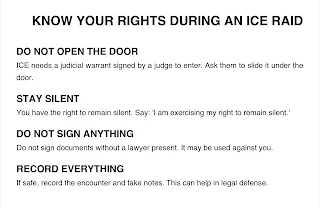Conscious capitalism, with its emphasis on ethical leadership, stakeholder responsibility, and higher purpose, can be a powerful force in reshaping SWFs toward greater transparency, accountability, and social responsibility. If applied strategically, it can influence policies, shape governance frameworks, and mobilize public and private actors to reform how SWFs operate.
1. How Conscious Capitalism Can Shape SWF Reform
A. Establishing Ethical Investment Standards
• Conscious capitalism promotes investing for positive impact rather than just maximizing returns.
• SWFs should adopt strict Environmental, Social, and Governance (ESG) investment criteria, ensuring they:
• Avoid investments in industries that exploit labor, harm the environment, or contribute to corruption.
• Actively support sustainable development, renewable energy, and ethical enterprises.
• Require impact measurement—ensuring investments improve societies rather than just accumulating wealth.
Example: Norway’s SWF has already implemented ethical divestment strategies, removing holdings in tobacco, coal, and deforestation-linked companies.
B. Making SWFs Accountable to the Public
• Conscious capitalism stresses stakeholder responsibility, meaning SWFs should be accountable to citizens, not just governments.
• Governments should publicly disclose SWF holdings and strategic objectives.
• Citizen advisory boards, public oversight committees, and third-party audits should be required.
• Use blockchain or open-source financial tracking tools to allow public scrutiny of SWF transactions.
C. Creating a Global SWF Ethical Governance Treaty
• Conscious capitalism supports global cooperation in ethical finance.
• An international SWF governance treaty could set universal anti-corruption standards, ensuring:
• Transparency in all investments.
• Restrictions on politically motivated investments.
• Mechanisms to prevent SWFs from funding authoritarianism, war, or environmental destruction.
• Conscious businesses, advocacy groups, and ethical investors should collaborate to push for this framework.
D. Shifting SWFs Toward Regenerative Investing
• Rather than hoarding wealth, SWFs could be reinvested in future-focused, regenerative economic models.
• They could fund:
• Large-scale climate solutions (carbon capture, clean energy).
• Infrastructure for sustainable cities and circular economies.
• Universal basic services (education, healthcare, and social well-being).
• This ensures SWFs not only grow wealth but also uplift societies, fulfilling a higher purpose beyond profit.
2. How You Can Advocate for SWF Reform & Anti-Corruption Policies
Since you’re already politically engaged, you have multiple avenues to advocate for change, including direct action, awareness campaigns, and influencing policymakers.
A. Engaging with Lawmakers & Policy Advocacy
Since SWFs are state-controlled, political advocacy is one of the strongest tools for reform.
• Write to federal lawmakers, financial regulators, and economic committees advocating for:
• Mandatory SWF transparency laws.
• Stronger ESG and ethical investment requirements.
• Public disclosure of SWF holdings and investment strategies.
• Support or propose an SWF Anti-Corruption & Ethical Investment Bill that ensures:
• Strict oversight mechanisms.
• Divestment from unethical industries.
• Citizen representation in SWF governance.
Tactic: Use your letter-writing skills to influence economic policy discussions in Congress and the Senate.
B. Raising Public Awareness
SWFs often operate behind closed doors, with little public knowledge or discussion. You can:
• Write blog posts on Seek and Expand, breaking down how SWFs impact national economies, ethical concerns, and how people can demand reforms.
• Use social media to educate and mobilize people on the importance of SWF accountability.
• Collaborate with watchdog organizations like Transparency International, OpenSecrets, or Global Witness, which investigate financial corruption.
Tactic: Publish an exposé or thought leadership piece on how SWFs can be a force for conscious capitalism and push ethical investment.
C. Organizing or Joining Citizen-Led Transparency Movements
Public pressure works. Some strategies:
• Citizen Petitions & Campaigns – Organize a petition calling for SWF transparency laws in the U.S.
• Partnering with Activist Groups – Groups like the International Consortium of Investigative Journalists (ICIJ) have exposed financial corruption in sovereign wealth.
• Hosting Public Forums & Webinars – Invite experts on SWFs, conscious capitalism, and anti-corruption reform.
Tactic: Use Seek and Expand to mobilize a public call to action on SWF reform.
D. Leveraging Conscious Business Leaders & Ethical Investors
• Ethical businesses and impact investors have influence over government investment strategies.
• Reach out to conscious investment groups (e.g., B Corporations, impact funds) to:
• Push for SWF divestment from unethical industries.
• Support investor-backed SWF ethical guidelines.
• Advocate for government-mandated ESG investment rules for SWFs.
Tactic: Connect with sustainable finance leaders and propose an ethical SWF framework they can champion.
E. Exploring International Collaboration
Since SWFs are global financial players, international coalitions are needed to enforce ethical standards.
• Support UN initiatives for responsible sovereign investment.
• Engage with EU, OECD, and G20 financial regulators to push for global SWF transparency.
• Advocate for an independent international SWF oversight body.
Tactic: Network with global financial ethics groups and explore how international treaties can hold SWFs accountable.
Final Thought: Conscious Capitalism as a Force for Financial Reform
• If SWFs align with conscious capitalism, they could become global leaders in ethical, sustainable investment.
• This shift would require public awareness, policy change, and international cooperation.
• Your role as an advocate, educator, and thought leader can help influence this transformation.
Next up:
Sovereign Wealth Fund (SWF) Manifesto



